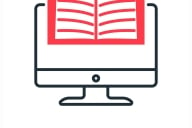You have /5 articles left.
Sign up for a free account or log in.
Many colleges in the United States and elsewhere lost service for the learning management systems of Desire2Learn last week -- some for three days. In many cases, instructors and students lacked access to assignments, material turned in, and basic records about courses.
On Friday, Desire2Learn announced that the problems had been solved, and apologized for the many inconveniences.
John Baker, CEO of Desire2Learn, posted a statement on the company's website that summed up the situation with the headline: "You have every right to be angry."
"At its worst point, the outage affected one in four of our clients. Learners and employees were frustrated and angry, and justly so. They are under tremendously tight deadlines. They had essays due, lectures to watch, quizzes to complete and questions they wanted answered. Digital technologies are now integral to their learning, and when technology fails the frustration is immediate," he wrote. "For many of our clients, our software is the hub around which they build their programs. They expect that our services are up and running during the day and throughout the evening and night. This is the goal to which we strive, and I apologize for falling far short of this. Some of you had no service for a period that reached up to 72 hours, which is completely unacceptable. Our system is now functioning normally and I have personally confirmed that all client data and sites are fully restored."
Baker's post didn't go into detail about why the problems occurred, but pledged that Desire2Learn would soon share an analysis of the situation as well as "steps we have taken and will take in the near future to prevent a repeat of this failure."
A major Desire2Learn outage affects many colleges. According to the most recent survey from the Campus Computing Project, Desire2Learn has 11 percent of the LMS market, behind only Blackboard and Moodle. In parts of the market, however, Desire2Learn's market penetration is much greater. It has 24 percent of the community college market and 19 percent of the market among public four-year colleges.
Desire2Learn has been in growth mode of late, taking in $80 million in venture funding last year, and in January purchasing Degree Compass, an analytics tool that helps students select courses that will speed their way to graduation.
The impact of the outage on Desire2Learn may be hard to predict right now. On Twitter, there are plenty of gripes about the inconveniences of the last week, but also praise for Baker's apology as a sign that the company understood the seriousness of the problem. Some people whose colleges use another LMS expressed relief that they were not using Desire2Learn. A Blackboard employee tweeted a pitch for a new LMS option from her company: "Struggling with the #D2L outage? Check out http://coursesites.com (CC @coursesites). Fast, free, and super easy to use."
Despite the obvious embarrassment for Desire2Learn, experts cautioned that events like those of the last week do happen from time to time to many companies.
Kenneth C. Green, the founder and director of the Campus Computing Project, said via e-mail that "alas (and unfortunately), this happens and it is not unique to D2L, or even LMS providers, or to the higher ed market. Canvas/INSTRUCTURE suffered a major outage during fall rush 2012. Instructure CEO Josh Coates went public immediately to acknowledge the problem. Similarly Amazon experienced a major crash of its cloud services some months ago, playing havoc with client business services and destroying data. And Google's Gmail services also crashed in December, affecting users across the globe.
"These outages — a campus e-mail system or LMS, Amazon cloud services for businesses, access to bank and credit card accounts — highlight both the ubiquity of technology and also our dependency upon technology. Equally important, they offer a cautionary tale for many campus CIOs who have to assess the costs, benefits, and consequences of moving key (mission-critical) IT resources such as the LMS, ERP, from hosted campus services to vendor-provided cloud services." (Disclosure: Green is also a blogger for Inside Higher Ed.)
Don McIntosh, who as president of Trimeritus eLearning Solutions advises colleges on LMS issues, said that the key for LMS providers in situations like this is good communication and honesty about what went wrong.
"Customers will be angry and some will, no doubt, look elsewhere for service. Others will, like me, accept some interruptions in service as almost inevitable and hope that Desire2Learn will learn from this incident and improve their infrastructure. Desire2Learn has accepted the responsibility for this and that has proven to be a key factor in the past," McIntosh said via e-mail.
"Past performance has not been one of the main factors that organizations use to select an LMS, although it should probably be added to the list. Word of mouth is a strong factor in selection of an LMS and if existing customers are unhappy with the way Desire2Learn has dealt with this, it could affect future implementations. My reading is that most customers have agreed to cope with the situation," he added. "Over all, my view is that this will create a minor ripple but won't be a major factor going forward. These things happen and Desire2Learn has responded responsibly and quickly."
But Phil Hill, co-founder of MindWires, a consulting group on education technology, said he thought the impact on Desire2Learn could be significant. Hill said he agreed with other experts that "any enterprise software vendor is going to have problems, and every LMS solution has had outages."
But he said that the reason last week's problem could be more serious for Desire2Learn is because it "has had a well-deserved reputation of not having the outage and service-level issues that have plagued Blackboard over the years." Hill said the confidence of colleges in the reliability of Desire2Learn is a big part of the company's very high rate of renewals (which Desire2Learn says are as high as 98 percent). "With the recent outages and service problems, this reputation is at risk."
Further, Hill said that Desire2Learn's place in the LMS market may be understated by its 11 percent share. Increasingly, Hill said, when colleges have decided to change their LMS, he is seeing the competition end up as Instructure vs. Desire2Learn. So this is a pivotal time, he said, for the company.








